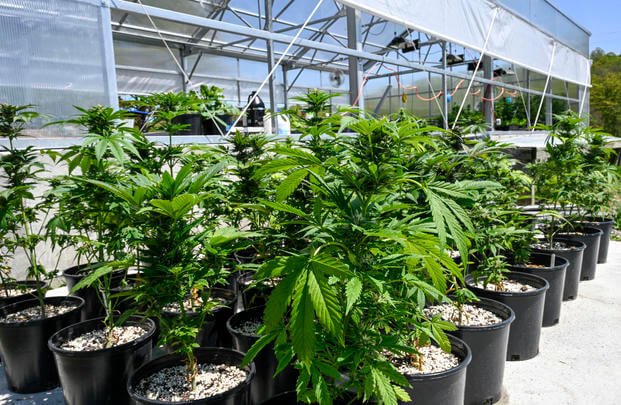Military recruits and prospective officers wouldn't have to undergo testing for marijuana under a proposed amendment to the annual defense bill.
Rep. Matt Gaetz, R-Fla., has filed an amendment to the National Defense Authorization Act, or NDAA, that would bar the military services from making someone take a test for cannabis as a condition of enlisting or commissioning.
"Our military is facing a recruitment and retainment crisis unlike any other time in American history," Gaetz tweeted about his amendment, which was first reported by Politico. "I do not believe that prior use of cannabis should exclude Americans from enlisting in the armed forces. We should embrace them for stepping up to serve our country."
Read Next: Navy Recruiting Boss Overruled by Superiors on 6-Day Workweek Plan
The House Rules Committee must still decide which of the more than 1,400 amendments filed for the NDAA will get votes when the bill comes to the House floor next week. Typically, just a fraction of filed amendments for the massive defense bill gets votes, though House Republican leadership at the beginning of the year vowed to allow a more freewheeling amendment process in the chamber than recent years. Spokespeople for Gaetz did not immediately respond to a request for comment on the prospects for his amendment getting a vote.
The amendment marks the latest effort to remove a leading barrier to entering the military as the services struggle to attract young people to join and is the most recent signal of changing attitudes in Congress surrounding marijuana.
While 23 states allow marijuana for recreational use and 38 allow it for medical use, the drug remains illegal at the federal level, and past use is still technically disqualifying for military service.
But as access to marijuana becomes more widespread and the military faces what some have described as the toughest recruiting environment in the 50 years of the all-volunteer force, the military branches have taken steps to relax enlistment policies.
Last year, the Air Force and Space Force launched a pilot program that allows otherwise qualified applicants who test positive for THC, the main psychoactive component in marijuana, a chance to retest. In the first three months of the pilot program, 43 applicants who tested positive were granted waivers to retest, and the newly minted head of Air Force recruiting has said he expects the policy will likely become permanent.
The Air Force pilot program was inspired by similar efforts from the Army and Navy. Between 2018 and 2022, the Army granted waivers to more than 3,300 recruits who failed a drug test or admitted past drug use, while the Navy has given out 1,375 waivers over the last three years, according to data obtained by The New York Times.
Gaetz's amendment is one of several offered for the NDAA related to marijuana use. Others include one from Rep. Robert Garcia, D-Calif., that would prohibit denying security clearances based only on past marijuana use in states where it is legal; one from Rep. Mikie Sherrill, D-N.J., and other Democrats that would create an expedited waiver process for recruits with past marijuana use; one from Rep. Brian Mast, R-Fla., and a bipartisan group of lawmakers to allow Department of Veterans Affairs doctors to recommend marijuana to patients; and one from Rep. Tony Gonzales, R-Texas, to allow service members to use CBD, a hemp-derived product that is legal federally.
If any of those amendments were approved, they would join other provisions already in the House NDAA that could relax restrictions on currently illegal drugs. Specifically, the bill would mandate studies on using psychedelic drugs and marijuana as treatments for post-traumatic disorder and other conditions afflicting service members and veterans.
Despite a growing interest in Congress on relaxing rules surrounding marijuana, bills to do so have still struggled to become law amid continued skepticism in the wider GOP conference. Earlier this year, a bill to require the VA to conduct a study of veterans who use marijuana and have chronic pain or PTSD to see how the drug affects their health failed in the Senate. Last year, a House bill to decriminalize marijuana garnered just three Republican "yes" votes -- Gaetz, Mast and Rep. Tom McClintock, R-Calif. -- and was never voted on in the Senate.
-- Rebecca Kheel can be reached at rebecca.kheel@military.com. Follow her on Twitter @reporterkheel.
Related: Air Force Accepted Dozens of New Recruits Who Tested Positive for THC Under New Program














